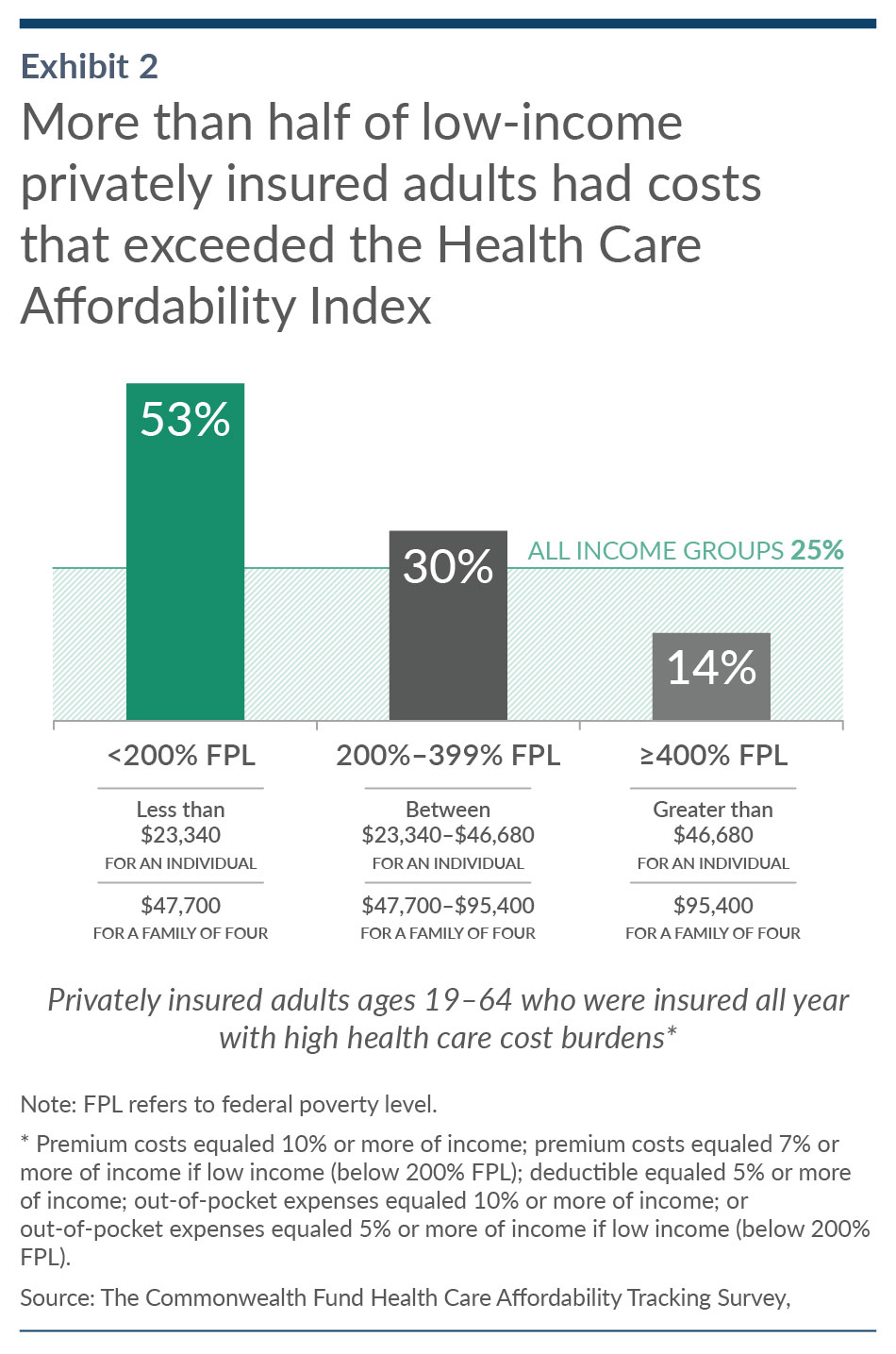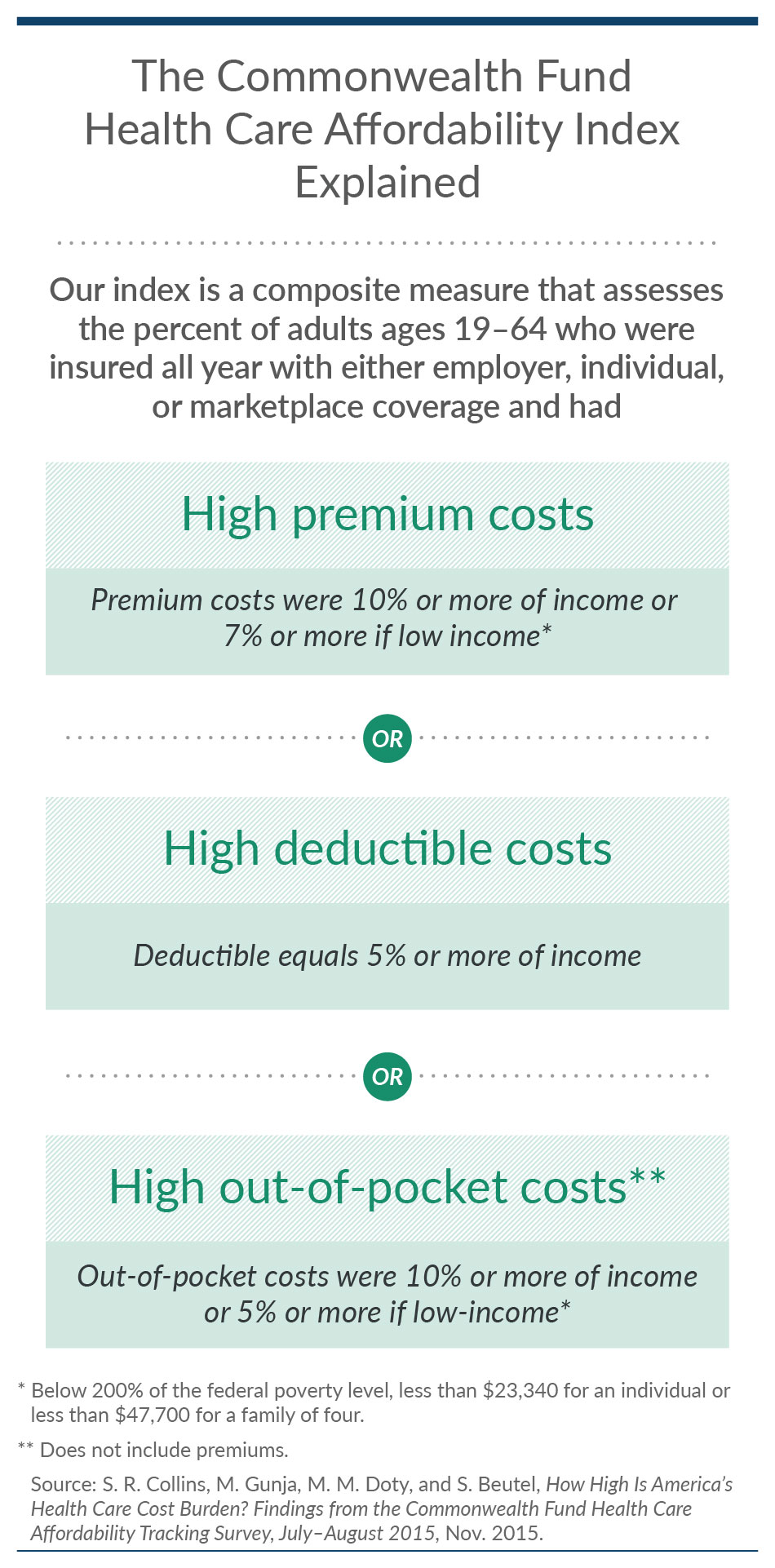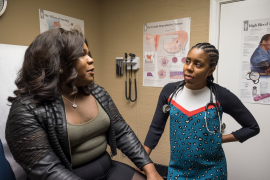New York, NY, November 20, 2015—Health care costs are unaffordable for 25 percent of privately insured working-age adults, according to the Commonwealth Fund Health Care Affordability Index. The new index identifies 30 percent of people with moderate incomes and 53 percent with low incomes as having unaffordable health care costs. People with exposure to high health care costs relative to their incomes were the most likely to skip needed health care and not fill prescriptions.
The new index was released today in the report, How High Is America’s Health Care Cost Burden? Based on an annual Commonwealth Fund survey of U.S.  adults’ health costs, it measures premiums, deductibles, and out-of-pocket spending as a share of income for a population of insured people, made up primarily of people with employer coverage (90%), but also including people in marketplace plans (6%) and with individual coverage (5%). A detailed description of the index and how it defines affordability, can be found in the methods description at the end of the press release. The Commonwealth Fund will update the index regularly.
adults’ health costs, it measures premiums, deductibles, and out-of-pocket spending as a share of income for a population of insured people, made up primarily of people with employer coverage (90%), but also including people in marketplace plans (6%) and with individual coverage (5%). A detailed description of the index and how it defines affordability, can be found in the methods description at the end of the press release. The Commonwealth Fund will update the index regularly.
“Consumers feel the effect of health care costs every time they pay their premiums or reach into their pockets at the doctor’s office,” said lead author Sara Collins, Vice President for Health Care Coverage and Access at The Commonwealth Fund. “Our index looks at how working-age adults are spending money on health care, using a fairly conservative measure of affordability to highlight how many people have costs that likely make it difficult to afford other necessities like food and housing.”
Can People Afford Their Premiums, Deductibles, and Copays?
According to the report, high deductibles are a major reason people struggle to afford health care—43 percent of all of those surveyed and 51 percent of low- and moderate-income people said their deductible is difficult or impossible to afford.
The report finds that some respondents’ perceive their cost burdens to be higher than what the affordability index shows. According to the researchers, such perceptions are important because they affect how people use their health plans to get care.
Most people find premiums and copayments or coinsurance somewhat easier to afford than deductibles. Still, 34 percent of low-income adults (an individual making less than $23,340 a year) reported difficulty affording their copayments and coinsurance.
Going Without Needed Health Care
The report finds that having high health care costs, particularly high deductibles, or a low income often means going without care.
- Forty percent of people with high deductibles relative to their incomes said they had not gone to the doctor when they were sick, had not gotten a preventive care test, skipped a recommended follow-up test, or had not gotten specialist care they needed because of their deductible.
- Thirty-nine percent of low-income adults said that because of copayments or coinsurance, they did not fill a prescription or go to the doctor when they were sick, skipped a medical test or follow-up visit, or did not see a specialist when they or their doctor said they needed one.
“More Americans than ever have health insurance, but these findings show that too many people with all types of coverage aren’t getting care because of high costs,” said Commonwealth Fund president David Blumenthal, M.D. “As the Affordable Care Act moves into its next phase, when it will focus on improving quality of care and keeping costs down, policies to mitigate cost burdens for families may also be needed.”
Additional Survey Findings
- Nearly two of five (37%) of adults said they were not aware or did not know whether their health plan covered preventive services with no out-of-pocket costs, as required by the Affordable Care Act. About half (49%) of low-income adults said they were not aware that preventive care was fully covered.
- A quarter (26%) of people who had been billed for services their insurer wouldn’t cover said it was because the doctor was out-of-network.



